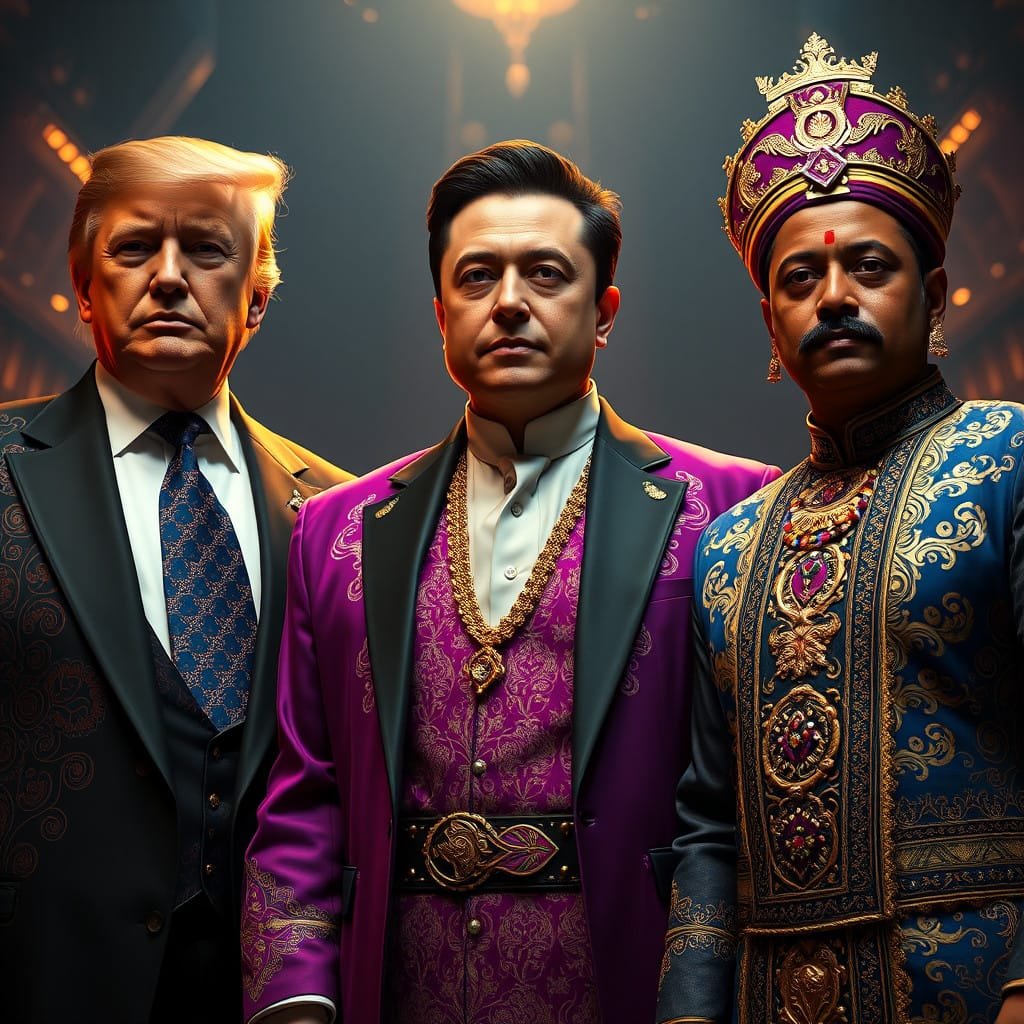As the dust settles from the 2024 presidential election, one thing is becoming increasingly clear: promises made on the campaign trail don’t always translate to action. Donald Trump’s triumphant return to the political stage was fueled by bold claims, populist rhetoric, and a pledge to address the economic woes of everyday Americans. Yet, even before his inauguration, cracks are beginning to show—not just in his promises but in the shadowy influences that seem to be shaping his administration.
Campaign Promises vs. Early Realities
During his 2024 campaign, Trump made sweeping promises to lower the cost of groceries and gas, issues that have plagued Americans amid ongoing global economic instability. His rhetoric resonated with voters desperate for relief at the pump and in the checkout line. However, as we approach his inauguration, there is little evidence to suggest these promises are being prioritized. Instead, Trump appears to be walking back his commitments, citing “complicated market dynamics” and “external factors” as reasons for inaction.
This backtracking is not just disappointing—it’s alarming. For many working-class Americans who voted for Trump in hopes of financial relief, this signals a continuation of economic strain rather than the alleviation they were promised.
The Musk-Ramaswamy Influence: Who’s Really Running the Show?
Even more concerning is the growing perception that Trump is not fully in control of his own administration. Elon Musk, billionaire entrepreneur and enigmatic figure, seems to have positioned himself as a key power broker. Meanwhile, Vivek Ramaswamy, the biotech entrepreneur turned political firebrand, has emerged as another influential figure behind the scenes. Both men are reportedly central to “Project 2025,” a conservative blueprint aimed at reshaping the federal government and consolidating power within the executive branch.
Critics argue that Musk and Ramaswamy’s influence extends far beyond advisory roles. From policy decisions to personnel appointments, their fingerprints are all over Trump’s early plans—raising questions about whose interests are truly being served. Are these figures shaping policy for the benefit of the American people, or are they leveraging their positions to advance personal agendas?
The Creation of DOGE: A Political and Economic Experiment
Perhaps the most bizarre development in this unfolding narrative is the creation of DOGE (Digital Operations Governance Entity), a blockchain-based initiative reportedly spearheaded by Musk and supported by Ramaswamy. While details remain murky, DOGE is being touted as a revolutionary system for managing government operations and streamlining bureaucracy.
On paper, this sounds innovative. In practice, however, it raises significant concerns about transparency, accountability, and the privatization of public governance. Critics worry that this experiment could further entrench corporate interests in government while sidelining traditional democratic processes.
The Economic Fallout: What Lies Ahead?
So what does all of this mean for the next four years? If Trump’s early actions are any indication, the economic relief he promised may remain elusive. Gas prices and grocery costs are unlikely to drop without meaningful policy interventions—interventions that seem increasingly unlikely given the administration’s focus on consolidating power and experimenting with blockchain governance.
This could have far-reaching consequences for American families already struggling to make ends meet. Rising costs of living coupled with stagnant wages could exacerbate economic inequality, deepen public disillusionment with government, and fuel further political polarization.
Moreover, the perception that unelected figures like Musk and Ramaswamy are wielding outsized influence could erode trust in democratic institutions. If voters feel their voices are being drowned out by billionaires and tech moguls, the long-term implications for civic engagement and political stability could be dire.
Conclusion: A Critical Moment for Accountability
As Trump prepares to take office once again, it’s imperative that we hold him accountable—not just for the promises he made but for the direction his administration is taking. The influence of figures like Musk and Ramaswamy must be scrutinized, and initiatives like DOGE must be subjected to rigorous oversight. Above all, the needs of everyday Americans must remain at the forefront of policy decisions.
The next four years will undoubtedly be pivotal for the United States. Whether they bring progress or further division will depend on how these early warning signs are addressed—and whether those in power choose to prioritize people over politics.



